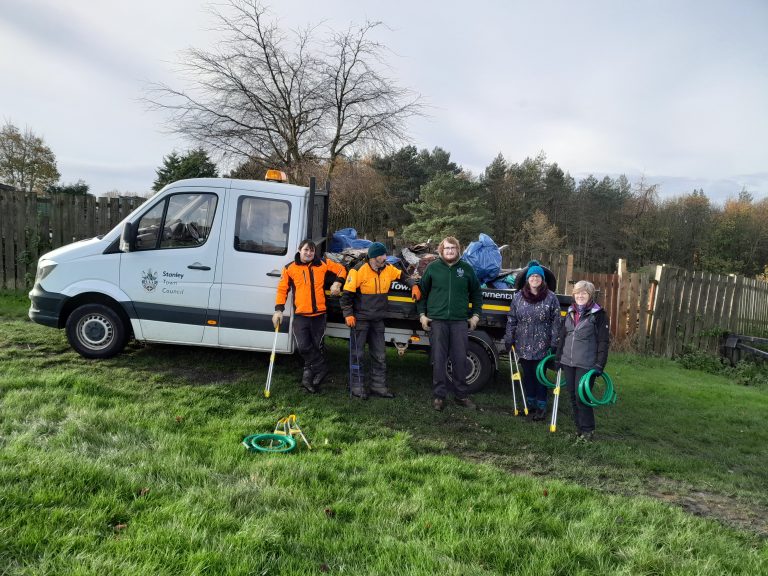Teesside University Team Completes Soil Moisture Sensors Testing for Stanley SuDS Deployment
As part of the Stanley SuDS monitoring initiative, the team at Teesside University has finalized the soil moisture sensors for installation across project sites. These sensors underwent rigorous testing in both laboratory settings and on-ground various soil types to ensure reliability and precision in diverse conditions.

Initially, the sensors were tested in controlled laboratory environments, followed by field tests in different soil types to identify and rectify any potential errors and anomalies before deployment. This is to make sure that the sensors will function optimally once installed on-site, providing accurate data essential for the project’s next phases.
Soil moisture sensors are devices designed to measure or estimate the amount of water present in the soil. These sensors can either be stationary, fixed at a specific location, or portable, allowing for measurements at multiple locations. For the Stanley SuDS project, portable probes are being utilized to gauge the volumetric water content of the soil accurately.

The data collected from these soil moisture sensors will help determining the soil’s capacity to absorb water from precipitation and snowmelt. This information serves as an early indicator of significant precipitation run-offs and potential flash floods. By leveraging these advanced sensors, the Stanley SuDS project aims to enhance predictive modelling and data analysis, ultimately contributing to more effective flood management and mitigation strategies in the future.






